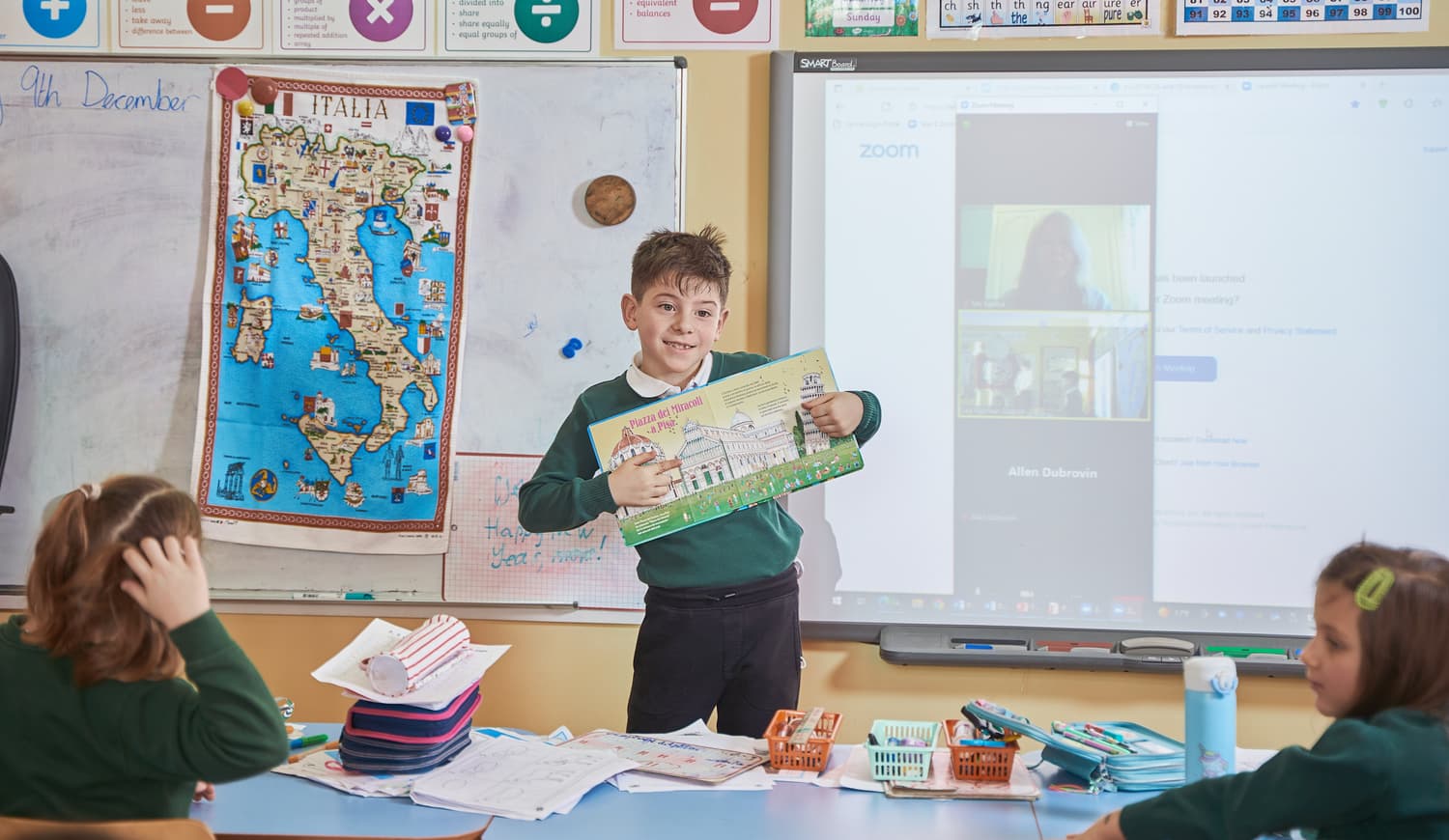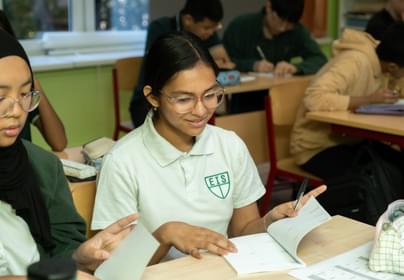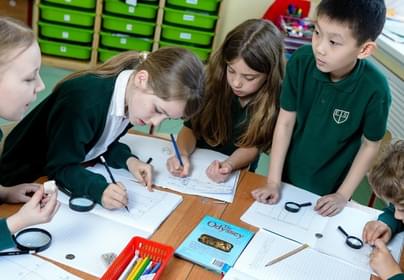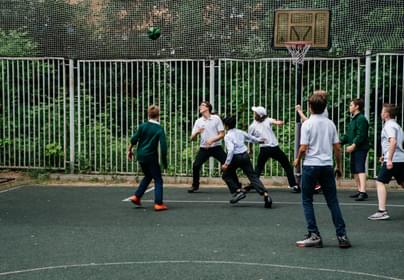Access our Frequently Asked Questions
We are here to help
Low student-teacher ratios ensure a conducive learning environment in which to develop students academically and as well-rounded individuals, using a personal and holistic approach.
Unique family-oriented communication between the students, teachers, parents and the management team.
Our outstanding academic results in IGCSE and A-Level
No English fluency is required at EIS.
For students who require additional help with English language, we provide a special programme - English as an Additional Language (EAL), which is free of charge. Our specially trained EAL teachers work in small groups to improve the acquisition of students’ English language within the School. To find out more, click on Language programmes.
A half-day nursery option is from 8 am until 12.30. It includes lessons, morning snack and hot lunch.
The afternoon bus service is not available for half-day Nursery.
No. Although we teach the Russian Language to all students from EYFS – Year 11, we do not teach the Russian National Curriculum.
Our schools are formally recognised by the Russian Ministry of Education.
English International School regards bullying as a serious infringement of individual rights and a serious threat to the self-esteem and self-confidence of targeted pupil(s). Therefore we do not tolerate bullying of any kind and operate a zero tolerance policy. Incidents of bullying are reported to parents.
Every report of bullying is treated seriously and dealt with, having due regard for the wellbeing of the targeted pupil(s) and the perpetrator(s).
An 'Anti-Bullying Team', made up of all staff members, exists to cultivate an environment free from bullying. The immediate priority, should bullying occur, is to end the bullying, by resolving the issues and restoring the relationships involved, insofar as is practicable, using a “Reform, not Blame” approach.
The fees are paid termly (once every three months) or annually.
The fees include all tuition, lunch and morning and afternoon snacks, all books and use of the library. Many extra-curricular activities (if run by internal staff) are provided free of charge.
The Assessment Fee, which also serves as a registration charge, reserves a place for a child at school. It is paid only once, during the admission process. Payments are made in Russian rubles or Euros by bank transfer or by card in any of our campuses.
The fees do not include: Purchase of school uniform, school bus, individual music tuition and extra-curricular activities provided by external providers.
Our curriculum is a balanced and complete programme, which broadly follows the English National Curriculum.
It includes core subjects such as Mathematics, English and Science as well as Information Technology, Physical Education and Arts. To find out more, click on Curriculum.
All worldwide universities accept students graduating from EIS.
To find out more, click here Exam results and Alumni
Yes. As the National Curriculum is well defined, transfering to any other British style school is straight forward.
In our experience, pupils transfer without difficulty to other international schools and to schools in their home country. The School actively helps parents in this transfer process by providing full transcripts enabling children to integrate smoothly into their new school
From EYFS to Year 11 Russian language is taught as second language for non-Russian students, as well as a first language to Russian students.
French is taught to students from Years 3-9 and can be taken at IGCSE level up to Year 11. To find out more, click on Language programmes
The British education system provides students with both knowledge and skills in a range of subjects:
- EYFS (nursery and reception) follows the Early Years Foundation Stage Framework from the UK to provide students with the skills needed to develop resilience, confidence and independence, as well as teaching them to form positive relationships.
- Primary (Years 1-6) students study and begin to develop both knowledge and skills in a range of subjects.
- Secondary KS3 (Years 7-9) students develop their skills and knowledge further across a range of subjects.
- Secondary KS4 (Years 10-11) students study for the International General Certificate of Secondary Education (IGCSE) across a range of subjects. They begin to specialize, choosing at least two option subjects.
Sixth Form KS5 (Years 12-13) students specialize by studying in depth 3-4 A Level subjects, in preparation for university. A Level qualifications are accepted by universities across the world.
Another important difference of the two approaches is the emphasis on independent work which is the cornerstone of British education. British students are taught to be self-sufficient, they are given the skills to independently obtain information and use it across a range of contexts.
There are formal meetings between parents and teachers twice during the school year.
However, the school operates an open-door policy and subject teachers and senior leaders are always available, both face-to-face and via email or Zoom to talk about any aspect of your child’s education.
We believe that the setting of regular homework from Year 1 helps to engender a spirit of enquiry, curiosity and investigation in students.
The homework set is designed to enhance the work we do at school by giving students an opportunity to prepare, research, reflect, learn and complete various tasks. Homework will not normally be used to introduce new concepts or skills.
- Years 1 and 2 - Approximately one hour per week (Excluding reading)
- Years 3 and 4 - 30 minutes per evening (Excluding reading)
- Years 5 and 6 - 45-60 minutes per evening (Excluding reading)
- Years 7 and 8 - 45-90 minutes per evening
- Year 9 – 60-120 minutes per evening
- Years 10 and 11 – 90-150 minutes per evening (Excluding reading)
- A Level - Key Stage 5 students (Years 12 and 13) are not included in the schedule, but are expected to spend at least one hour on independent study for each hour of contact (lesson) time they have in school, which will include homework and independent study tasks set by their teachers.
Tuition fees should be paid at the beginning of each term or before the first day in school.
Yes. We can admit students at any time of the year, places are partly filled on first-come-first-serve basis, subject to the availability.
Parents can contact our Admissions team to schedule a bespoke tour in the school or to receive more information electronically.




